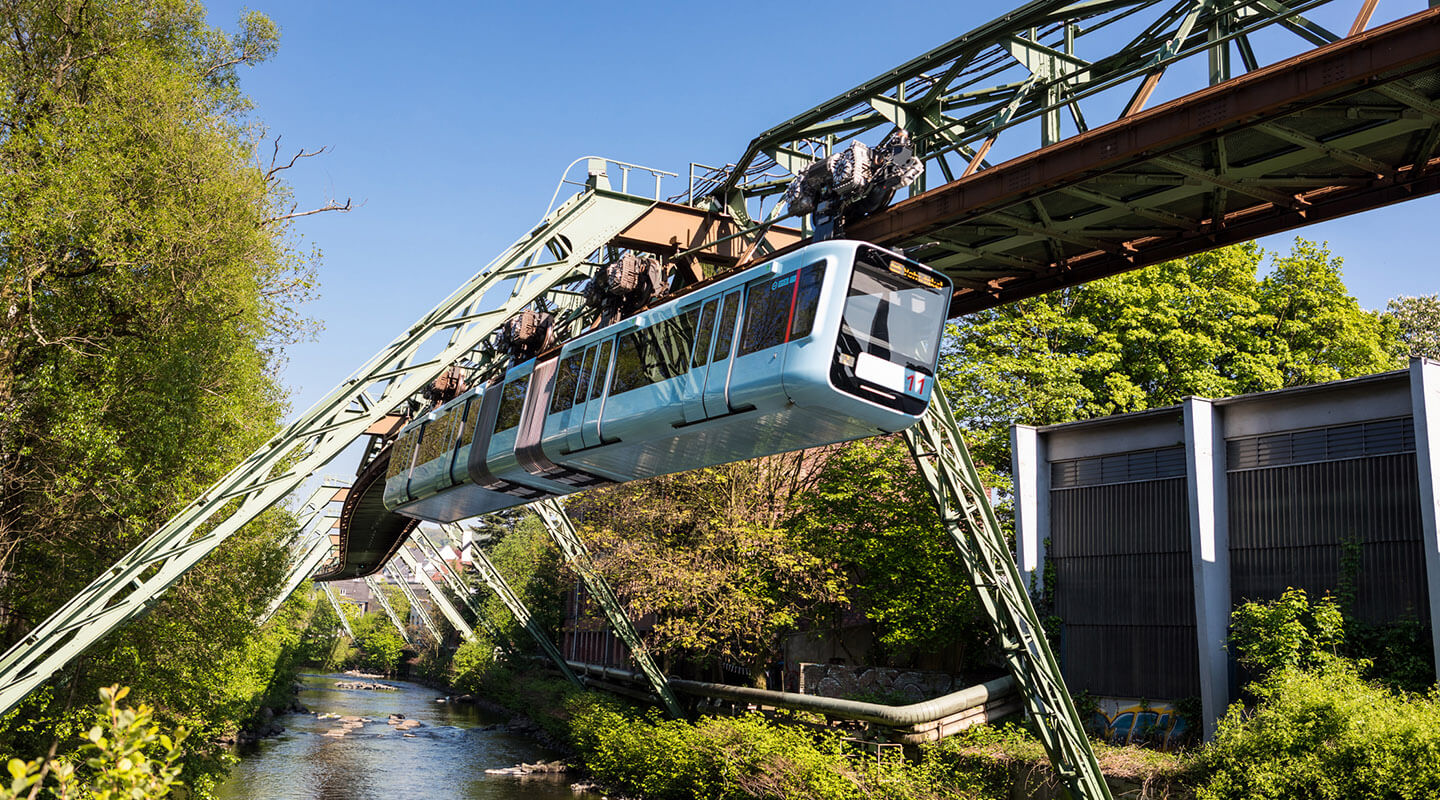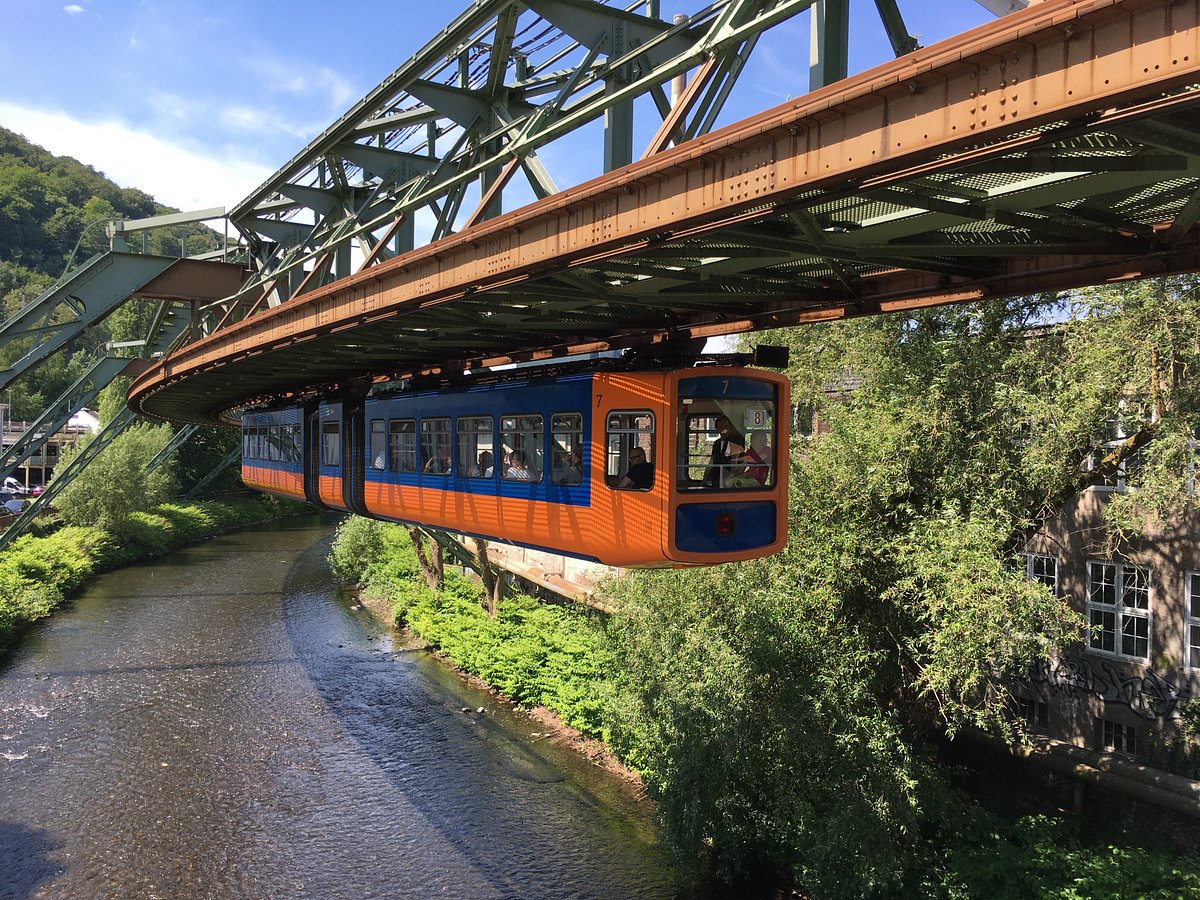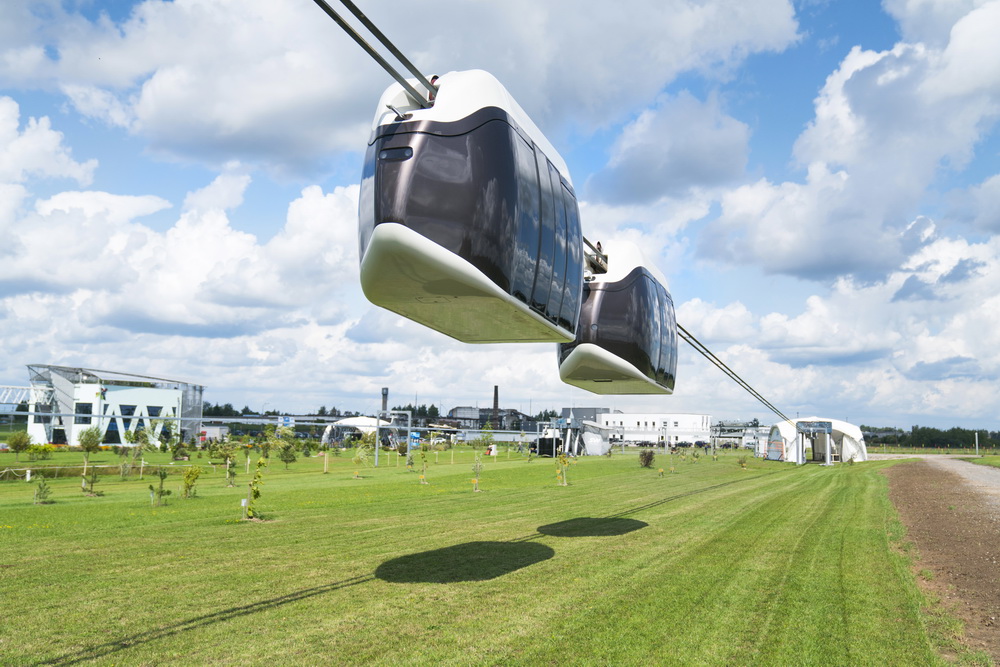


Urbanization worldwide has led to an exacerbation of traffic congestion issues. In search of solutions to this situation, governments in various countries are increasingly turning their attention to alternative modes of transport. One of such directions is above-ground transport solutions that can help relieve road congestion.
An example of this type of transport is the monorail. It first emerged in Russia in 1820, where it was known as a ‘road on pillars.’ Small carts, which were pulled by horses, rolled along an upper beam on this system. Soon after, a similar system was patented in the United Kingdom. In 1872, a cable-operated monorail was demonstrated in Lyon. A few years later, such a system was presented in the United States. With the advent of electricity, engineers began designing this type of transport with electric propulsion. The only viable system from that era that has survived is a 13.3 km line with 20 stations in Wuppertal, Germany. It was opened in 1901 and is still in operation today.

For a long time, monorails were not popular due to significant drawbacks. The technologies of that time did not allow for the creation of reliable and safe systems. Limited integration possibilities with existing transport infrastructure also posed challenges. Today, however, advancements in technology and the worsening issue of road congestion have changed the situation.
In the context of increasing urbanization and rising transportation demands, monorails have become a much more sought-after mode of transport. Modern monorail systems incorporate materials and engineering solutions that have improved the reliability and safety of this transport.
Trends in the transport industry indicate that the demand for above-ground transport is on the rise. But how well-suited is the monorail for this role? This solution has several significant disadvantages. One of the main issues is cost. The bulky design of monorail tracks not only disrupts the architectural landscape but also incurs substantial expenses due to high material usage. Operating a monorail, which consumes a lot of energy, is also expensive. Additionally, maintenance costs for this massive transport system can be considerable. Furthermore, monorails typically have low capacity and limited speed.

Today, there is a more advanced solution in the transport market. In addition to its unique advantages, it incorporates all the benefits of the monorail while eliminating its drawbacks. This is the uST transport.
Unlike the massive concrete overpasses used for monorail trains, the uST system requires minimal land acquisition. It does not disrupt the landscape and easily integrates into urban transport infrastructure. The lightweight design of the string rail overpass requires significantly less material compared to a monorail track. The construction of the uST track structure does not necessitate closing key transport arteries. The large distance between supports allows the track to overcome natural and infrastructural obstacles. The pre-tensioning of the rails addresses the issue of thermal expansion and enables the transport system to operate in abnormally high and low temperatures.

The uST system has a high capacity: during rush hours it can transport up to 50,000 passengers. Its adaptation to passenger flow through automated management systems helps prevent crowding at stations. Depending on the chosen type, the uPods can travel at speeds of up to 150 km/h. Each uPod wheel is equipped with an anti-derailment system, and vehicles maintain constant data exchange while on the line, eliminating the risk of accidents during movement and stopping.

The rail electric vehicles are equipped with their own traction motors. Even in the event of a power outage, they can continue moving along their route autonomously. In contrast, metro trains, monorails, and trams would lose their ability to operate under such circumstances.
As we can see, the uST transport system significantly outperforms the monorail due to its efficiency, low operational and capital costs, flexibility, high capacity, and safety. This solution not only meets the needs of modern megacities but also creates new opportunities for enhancing urban infrastructure.
This form asks for your consent to allow us to use your personal data for the reasons stated below. You should only sign it if you want to give us your consent.
Who are we?
The name of the organisation asking you for consent to use your information is:
Global Transport Investments
Trident Chambers, P.O. Box 146, Road Town
Tortola
British Virgin Islands
We would like to use the following information about you:
Why would we like to use your information?
Global Transport Investments would like to send this information to company registry, inform you about its news, for refund purposes.
What will we do with your information?
We store your name, address, ID Data, date of birth into company registry. We will share your e-mail & phone number with IT Service (https://digitalcontact.com/), SMS Center (http://smsc.ru). They will add your details to their mailing list and, when it is news update, they will send you an email or sms with details. We store your credit card number for possible refunds.
How to withdraw your consent
You can withdraw the consent you are giving on this form at any time. You can do this by writing to us at the above address, emailing us at the address: [email protected] or by clicking on the unsubscribe link at the bottom of emails you receive.
This privacy notice tells you about the information we collect from you when you sign up to receive our regular newsletter via our website. In collecting this information, we are acting as a data controller and, by law, we are required to provide you with information about us, about why and how we use your data, and about the rights you have over your data.
Who are we?
We are Global Transport Investments. Our address is Trident Chambers, P.O. Box 146, Road Town, Tortola, British Virgin Islands. You can contact us by post at the above address, by email at [email protected].
We are not required to have a data protection officer, so any enquiries about our use of your personal data should be addressed to the contact details above.
What personal data do we collect?
When you subscribe to our newsletter, we ask you for your name and your email address.
Why do we collect this information?
We will use your information to send you our newsletter, which contains information about our products.
We ask for your consent to do this, and we will only send you our newsletter for as long as you continue to consent.
What will we do with your information?
Your information is stored in our database and is shared with with IT Service (https://digitalcontact.com/), SMS Center (http://smsc.ru). It is not sent outside of the Euro. We will not use the information to make any automated decisions that might affect you.
How long do we keep your information for?
Your information is kept for as long as you continue to consent to receive our newsletter.
Your rights over your information
By law, you can ask us what information we hold about you, and you can ask us to correct it if it is inaccurate.
You can also ask for it to be erased and you can ask for us to give you a copy of the information.
You can also ask us to stop using your information – the simplest way to do this is to withdraw your consent, which you can do at any time, either by clicking the unsubscribe link at the end of any newsletter, or by emailing, writing us using the contact details above.
Your right to complain
If you have a complaint about our use of your information, you can contact the Information Commissioner’s Office.
Rate and Comment
You can assess the importance of a particular publication and the level of its preparation. Share your opinion in the comments!